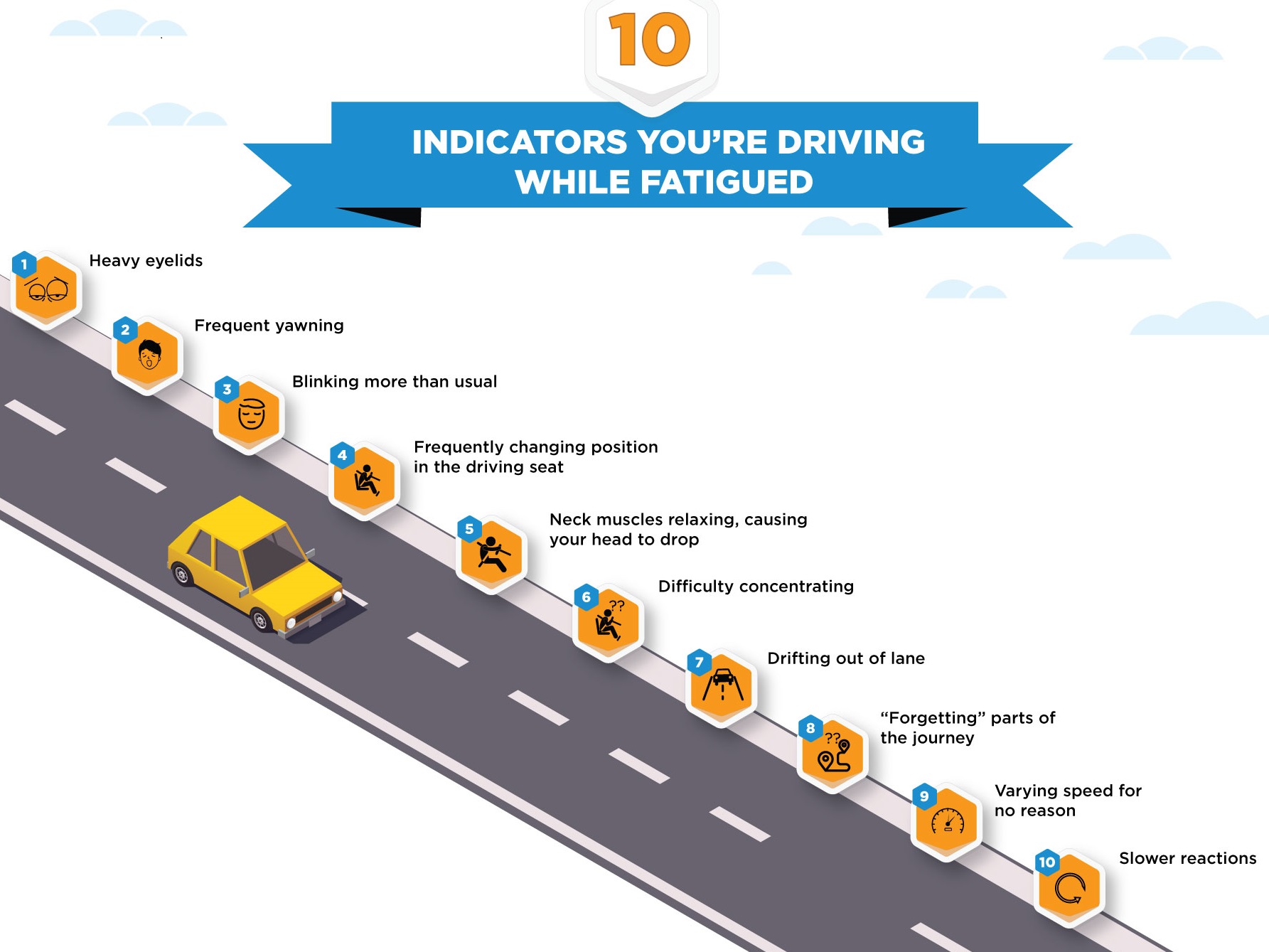News
It’s Time We Take a Stand against Drowsy Driving




As Drowsy Driving Prevention Week begins, eDriving delves deeper into the effects of insufficient sleep

According to the Centers for Disease Control and Prevention (CDC), more than one-third of Americans fail to get enough sleep on a daily basis. You may wonder why this is such a big deal—other than feeling tired, is it that problematic? The answer is a resounding YES. Not only does driver fatigue negatively affect the safety of others, but the CDC links it to several chronic diseases, such as diabetes, obesity, depression, coronary heart disease, and an increased risk of stroke.
This week (Nov. 5–12) is Drowsy Driving Prevention Week, a National Sleep Foundation (NSF) campaign that aims to increase awareness of drowsy driving, fatigue, and how they can be avoided. According to the NSF, 35% of Americans rate their sleep quality as “poor” or “only fair.” Perhaps it’s no surprise, then, that the organization’s Sleep in America poll found that 60% of Americans have driven while feeling sleepy and 37% admit to having fallen asleep at the wheel in the past year.
Would you get behind the wheel after drinking alcohol?
It seems drivers are underestimating just how dangerous it is to drive while tired. Here’s a clue: Being awake for 18 hours straight affects your driving in the same way that several alcoholic drinks would. Yet, research conducted by the Centre for Accident Research and Road Safety – Queensland (CARRS-Q) in Australia confirms that drivers do not perceive drowsy driving to be as serious as drunk driving.
“Some research suggests that drivers consider the signs of sleepiness as trivial and do not appreciate the level of impairment sleepiness has on our ability to drive safely,” said CARRS-Q Research Associate Dr. Chris Watling. “For instance, drinking and driving is a well-known risky driving behavior. Yet, our own research at CARRS-Q demonstrates drivers consider the crash risks associated with driving while tired are significantly lower than that of drunk driving. This suggests that drivers do not view the impairment from tiredness the same way as the impairment from drunk driving, even though the neurobehavioral impairment from 17-18 hours of wakefulness corresponds to the same impairment from having a Blood Alcohol Content (BAC) of 0.05. Sleep is an extremely important biological function for health and wellbeing, everyone needs to sleep, and no single individual is immune to its effects.”
“OK, so I’ll just sleep in this weekend.”
Unfortunately, it’s not always that simple. Many factors can cause poor sleep, including health issues, pain, and sleep-related conditions, such as sleep apnea. But, in many cases, a lack of sleep stems from bad sleeping habits and an unhealthy lifestyle. A study by the University of Arizona in Tucson has even identified what it refers to as “social jet lag,” which occurs when people go to bed and wake up later on weekends. This behavior is associated with poorer health, worsened moods, and increased fatigue, as well as an increase in the likelihood of heart disease.
Technology is also linked to poor sleep. Researchers at the University of California–San Francisco (UCSF) measured the impact of smartphone use on sleep quality. “Objective measures of screen time, measured using an app running in the background on the smartphone, was associated with worse quality sleep,” said Dr. Gregory Marcus, author of the study and Director of Clinical Research, Division of Cardiology, UCSF. “Screen time use right around the reported bedtime was especially tightly correlated with poor sleep.”
It’s not just a lack of sleep that’s the problem, but a lack of quality sleep
Just one night of poor sleep can impact a person’s ability to function. Fatigue affects your driving behavior by slowing your response to the behind-the-wheel mistakes of others.
“Drowsy driving, due to a lack of sleep, makes drivers less able to pay attention to the road, slows reaction time, and affects a driver’s ability to make good decisions,” said Anne Wheaton, Ph.D., Epidemiologist, Division of Population Health, CDC. “Choosing to make lifestyle changes such as getting a minimum of seven hours of sleep per day on a regular basis and turning off or removing televisions, computers, and mobile devices from the bedroom can help people develop healthy sleep habits.”
Be proactive. Follow these steps to reduce your risk of drowsy driving:
1. Get enough sleep (most adults need between seven to nine hours of sleep each night)
2. Take regular breaks during long drives
3. Avoid driving during times when you would typically be asleep
4. Don’t drive during the afternoon “dip” of 2–4 p.m.